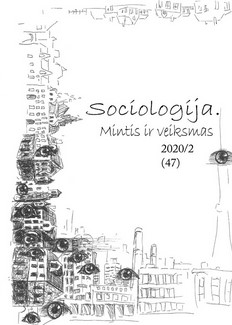Laimė ir pilietinis aktyvumas Lietuvoje
Happiness and Civic Activism in Lithuania
Author(s): Giedrė Plepytė-DavidavičienėSubject(s): Social psychology and group interaction, Comparative Psychology, Experimental Pschology, Transformation Period (1990 - 2010), Present Times (2010 - today)
Published by: Vilniaus Universiteto Leidykla
Keywords: happiness; civic participation; European Value Survey;
Summary/Abstract: In democratic societies, both civic activism and happiness of its members are inseparable and equally important. But do more active civic members of society feel happier? This article analyses how the forms of civic engagement affect the feeling of happiness of the Lithuanian population. 1999 and 2017 data from the European Values Survey reveal that civic participation has a rather limited effect on the level of happiness in Lithuania. Only the voting of citizens and their participation in protest activities have a statistically significant positive effect on the feeling of happiness. In this paper, I argue that the decision to vote or participate in protests is not so much about dissatisfaction with objective living conditions as about emotional security and solidarity. The implicit link between an individual’s psychological well-being and his or her engagement in civic activities is complex and not necessarily direct. Civic activism alone is unlikely to increase happiness. At the same time, the level of happiness is fostered by emotional security, which is linked to specific forms of civic engagement and the perceived personal and societal benefits of participating in specific civic activities.
Journal: Sociologija. Mintis ir Veiksmas
- Issue Year: 2020
- Issue No: 47 (02)
- Page Range: 62-82
- Page Count: 21
- Language: Lithuanian

